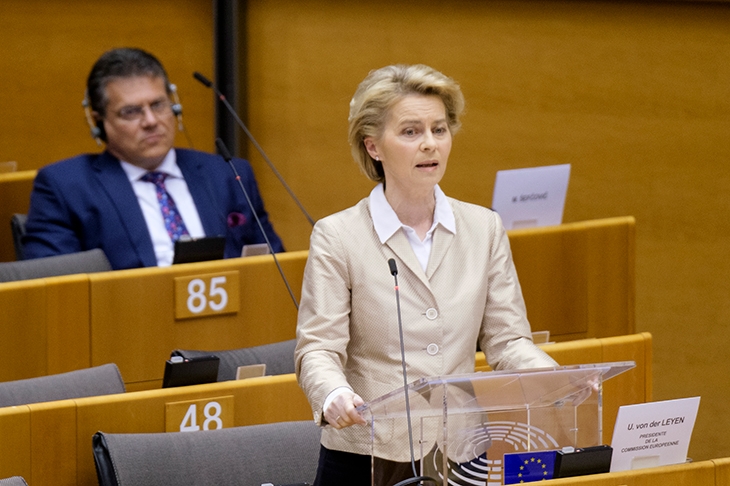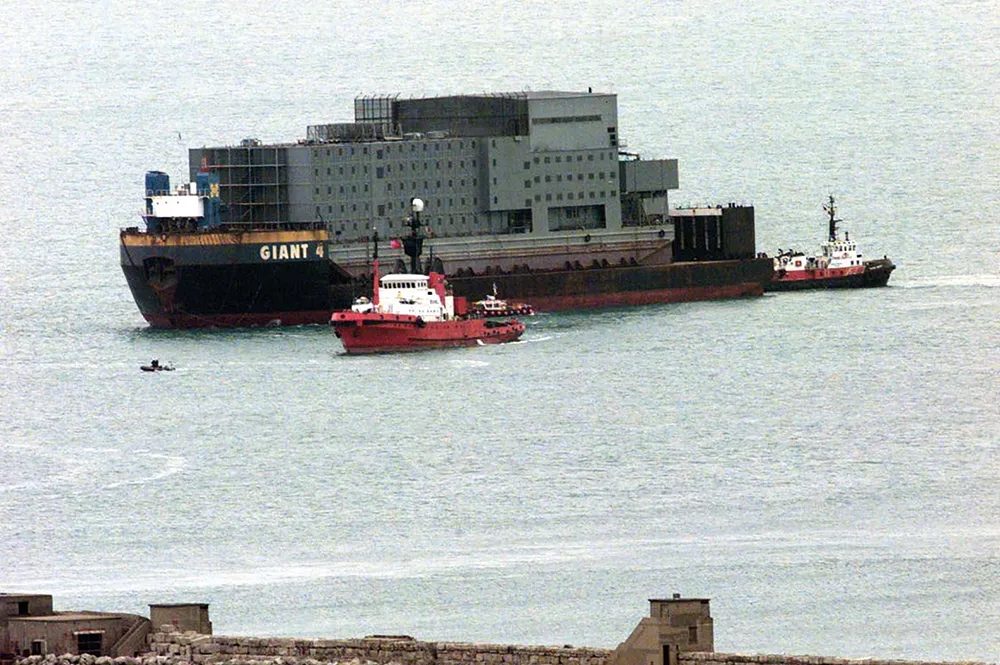This coronavirus has been cruel to the European Union. The supposed fraternity of member states was the first casualty of the virus, as countries hoarded their medical equipment and banned exports to each other. When Italy’s borrowing costs soared Christine Lagarde, now president of the European Central Bank, said this was not her problem. After much soul-searching — and an apology to Italy from Ursula von der Leyen, the new Commission president — Brussels is trying to repair the damage. But in a way that is exposing new, deeper cracks.
For weeks, Angela Merkel has been giving a resolute ‘Nein’ to the proposal that the eurozone should issue common bonds, so-called ‘coronabonds’, to help Italy, Spain and others to avoid a sovereign debt crisis. She has balked at ideas for a ‘transfer union’ — or that EU governments should share liability for government debt. But now it seems she has caved, throwing her support behind a €500 billion fund for this very purpose. It now awaits approval of the EU member governments.
Merkel knows, of course, that Austria, Finland and other frugal nations will protest. While she is sincere in her ambition to protect the European project, she isn’t exactly its Good Samaritan. Nor is she prepared to put too much German money at risk. Shrewdly, she knows the proposal will be watered down in the next few months, if it ever is agreed.
Merkel is also managing a domestic problem. Two weeks ago, the country’s constitutional court blew a big hole in Europe’s crisis management philosophy when it asserted that the European Central Bank may have violated the German constitution when it helped distressed eurozone economies by buying their debt. In effect, the judges in Karlsruhe warned that they could put a stop to that — including forthcoming efforts to save Italy from a debt crisis.
The reason this row is so devastating is that it is about sovereignty. It is true that the ECB doesn’t answer to the German court, but the Bundesbank does. If the ECB has acted outside its sovereignty, which the court says it has, the judges can prohibit Germany from taking part in collective efforts to buy more government bonds. The ECB has disagreed, and perhaps it is right. But Lagarde also knows that if Germany won’t take part in attempts to fix Italy’s unsustainable public debt, other countries will follow it out of the door. The ECB can no longer be the eurozone’s fixer.
Merkel, ever the model European, has been embarrassed by the court. But it’s impossible for her to pick a fight with it: the constitutional court is one of the most respected institutions in Germany. The judges also have the Bundesbank on their side: the bank has been arguing for years that the ECB overstepped its mark when Mario Draghi made good on his promise in 2012 to do ‘whatever it takes’ to save the euro club. The court also draws strong support from fiscal hawks in Merkel’s own Christian Democratic Union. They see, in the COVID crisis, a gigantic debt whirlpool in the south of Europe that threatens to suck in the north.
The stakes are pretty high. A recent poll in Italy found that two thirds now view their EU membership as a disadvantage. The prime minister of Spain said that the choice facing the EU is a stark one: ‘Either we rise to this challenge or we will fail as a union.’ Even Ursula von der Leyen has been talking in such terms. ‘We caught a glimpse of the abyss,’ she said recently.
Now, as so often in the past, it falls to Angela Merkel to save the EU from that abyss. She may well succeed in getting her €500 billion plan through. But if she fails, then it’s far from clear that anyone else has a Plan B.
This article was originally published in The Spectator’s UK magazine. Subscribe to the US edition here.

























